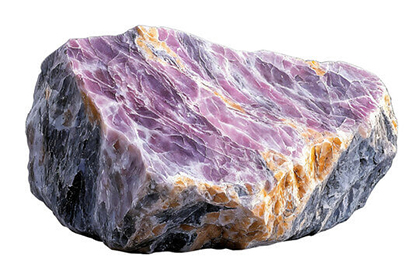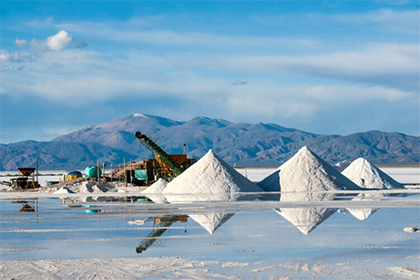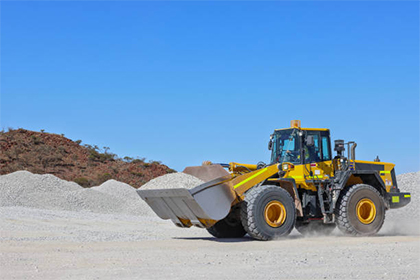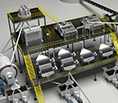The Ultimate Guide to Lithium Ore Production Line Setup
 Laura
Laura
 Nov 26, 2024
Nov 26, 2024
 325
325
If you want to know more details about equipment, solutions, etc, please click the button below for free consultation, or leave your requirements!
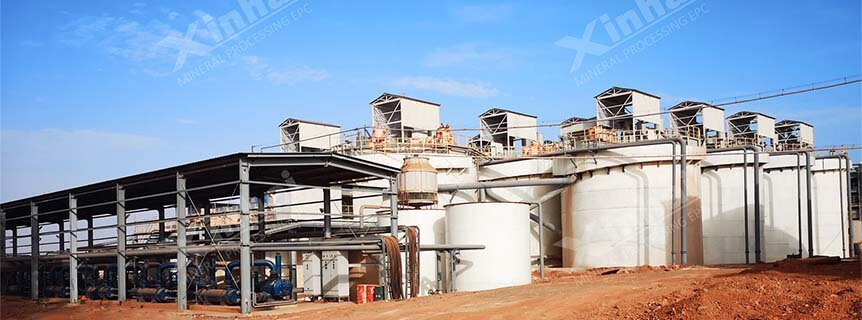
Lithium has emerged as a critical component in modern technology, particularly in the production of batteries for electric vehicles, smartphones, and renewable energy storage systems. As demand for lithium continues to rise, setting up a lithium ore production line has become an attractive business opportunity. This ultimate guide will walk you through the essential steps, considerations, and best practices for establishing an efficient and profitable lithium ore production line.
01Understanding Lithium Ore
Back1. What is Lithium Ore?
Lithium ore primarily consists of minerals that contain lithium, such as spodumene, lepidolite, and petalite. Spodumene is the most commercially significant source of lithium, valued for its high lithium content and relative abundance. Understanding the characteristics of these minerals is essential for optimizing extraction and processing.
2. Applications of Lithium
Lithium is used in various applications, including:
Lithium-ion Batteries: Powering electric vehicles, laptops, and smartphones.
Glass and Ceramics: Enhancing the strength and durability of glass.
Lubricating Greases: Reducing friction in machinery.
Pharmaceuticals: Used in certain medications for mood stabilization.
Given its wide range of applications, the lithium market is expected to grow significantly, making it a lucrative sector for investment.
02Market Trends and Opportunities
Back1. Current Market Landscape
The global lithium market has experienced exponential growth due to the surge in electric vehicle production and the increasing demand for renewable energy solutions. As of 2023, the demand for lithium is projected to continue rising, driven primarily by advancements in battery technology and sustainability efforts.
2. Identifying Opportunities
To successfully establish a lithium ore production line, it is crucial to identify market opportunities:
Electric Vehicle Manufacturers: Partner with companies producing electric vehicles to secure long-term contracts.
Battery Manufacturers: Collaborate with battery manufacturers looking for reliable lithium sources.
Renewable Energy Solutions: Explore partnerships in the renewable energy sector, which increasingly relies on lithium-ion batteries for energy storage.
03Setting Up Your Lithium Ore Production Line
BackStep 1: Conduct a Feasibility Study
Before investing in a lithium ore production line, conduct a comprehensive feasibility study. This study should evaluate:
Resource Availability: Assess the quantity and quality of lithium ore in your chosen location.
Market Demand: Analyze current and projected market demand for lithium.
Financial Projections: Estimate startup costs, operational expenses, and potential revenue.
Environmental Impact: Evaluate the ecological implications of mining and processing lithium.
Step 2: Obtain Necessary Permits and Licenses
Mining and production operations typically require various permits and licenses. Ensure compliance with local, state, and federal regulations by obtaining the following:
Mining Permit: Required to extract minerals from the land.
Environmental Clearance: Ensures that your operations will not adversely impact the environment.
Business License: Necessary to operate legally in your jurisdiction.
Consult with legal professionals and regulatory bodies to navigate the permitting process effectively.
Step 3: Selecting the Right Location
The location of your lithium ore production line is critical to its success. Consider the following factors when choosing a site:
Proximity to Resources: Select a location near lithium ore deposits to minimize transportation costs.
Infrastructure: Ensure access to essential infrastructure, such as roads, power supply, and water sources.
Environmental Considerations: Evaluate the ecological impact of your operations and select a site that minimizes disruption.
Step 4: Designing the Production Line
A well-designed production line is essential for maximizing efficiency and output. Key components to consider in your design include:
4.1 Crushing and Grinding
The first step in lithium ore processing involves crushing and grinding the ore to liberate lithium-containing minerals. This process typically involves:
Jaw Crushers: To break down larger rocks.
Ball Mills: For fine grinding of the crushed ore.
4.2 Concentration
After crushing and grinding, the next step is to concentrate the lithium minerals. Common methods include:
Gravity Separation: Utilizing differences in density to separate lithium minerals from gangue.
Flotation: A chemical process that separates minerals based on their surface properties.
4.3 Lithium Extraction
The extraction process depends on the type of lithium mineral being processed. For spodumene, the typical process includes:
Calcination: Heating the ore to convert spodumene into a more extractable form.
Acid Leaching: Using acid to dissolve lithium from the calcined material.
Step 5: Procuring Equipment
Investing in high-quality equipment is crucial for efficient lithium ore processing. Consider the following types of machinery:
Crushers: For breaking down the ore.
Mills: For grinding the material.
Separators: For concentrating lithium minerals.
Leaching Tanks: For the extraction process.
Research reputable suppliers and compare prices and specifications to ensure you select the best equipment for your production line.
Step 6: Hiring and Training Workforce
A skilled workforce is essential for the successful operation of your lithium ore production line. Follow these steps:
Recruitment: Hire experienced professionals with backgrounds in mining, geology, and chemical engineering.
Training: Provide comprehensive training on equipment operation, safety protocols, and environmental compliance.
Investing in your workforce will enhance productivity and ensure safer operations.
Step 7: Implementing Quality Control Measures
Quality control is crucial for maintaining product standards and meeting customer expectations. Implement the following measures:
Regular Testing: Conduct regular tests on lithium concentrate to ensure compliance with quality specifications.
Process Monitoring: Use technology to monitor production processes and identify areas for improvement.
Quality control will enhance your reputation and help maintain long-term customer relationships.
Step 8: Establishing Supply Chain Partnerships
Building a reliable supply chain is essential for sourcing raw materials and distributing finished products. Consider the following:
Raw Material Suppliers: Establish relationships with suppliers of lithium ore to ensure a consistent supply.
Logistics Partners: Partner with logistics companies for transportation and distribution of your products.
A strong supply chain will enhance operational efficiency and reduce costs.
Step 9: Marketing Your Lithium Products
Once your production line is operational, focus on marketing your lithium products effectively:
Target Industries: Identify key industries that require lithium, such as electric vehicles and renewable energy.
Digital Marketing: Utilize online platforms to promote your products and reach a wider audience.
Trade Shows and Conferences: Attend industry events to network and showcase your lithium products.
A robust marketing strategy will help you establish a strong presence in the market.
04Safety and Environmental Considerations
Back1. Safety Protocols
Safety is paramount in mining and production operations. Implement the following protocols:
Personal Protective Equipment (PPE): Ensure all workers wear appropriate PPE, including helmets, gloves, and safety goggles.
Training Programs: Conduct regular safety training sessions to educate employees about hazards and emergency procedures.
2. Environmental Sustainability
Sustainable practices are essential for minimizing the environmental impact of lithium production. Consider the following strategies:
Waste Management: Implement effective waste management practices to minimize pollution and resource depletion.
Rehabilitation: Plan for land rehabilitation after mining operations to restore ecosystems.
By prioritizing safety and sustainability, you can enhance your company’s reputation and comply with regulatory requirements.
05Conclusion
BackSetting up a lithium ore production line is a complex but rewarding endeavor. By following this ultimate guide, you can navigate the essential steps, from conducting feasibility studies and obtaining permits to designing your production line and implementing quality control measures. As the demand for lithium continues to grow, establishing an efficient and sustainable production line will position you for success in this lucrative industry. Whether you're a seasoned entrepreneur or a newcomer to the mining sector, careful planning and execution will pave the way for a prosperous future in lithium ore production.
Contact us and learn more about Lithium Ore Production Line!
 +86 18716000713
+86 18716000713 xlyin@xinhaimining.net
xlyin@xinhaimining.net



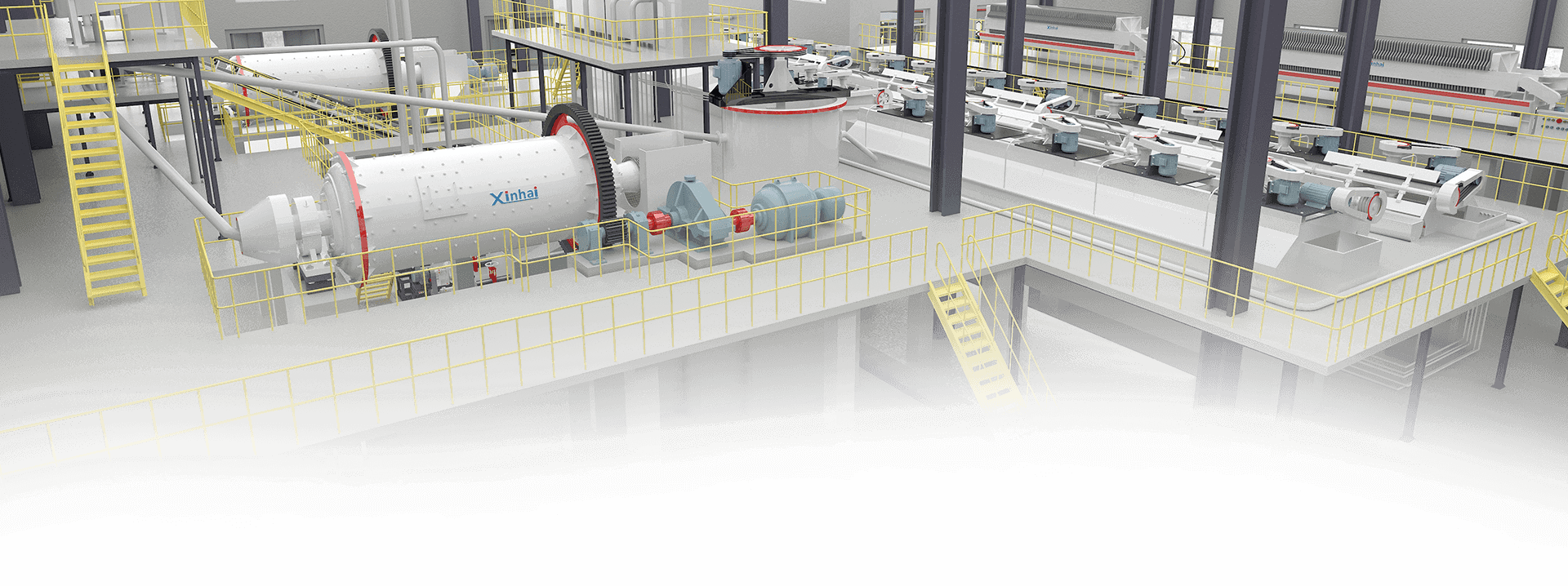
 Message
Message Chat Now
Chat Now


